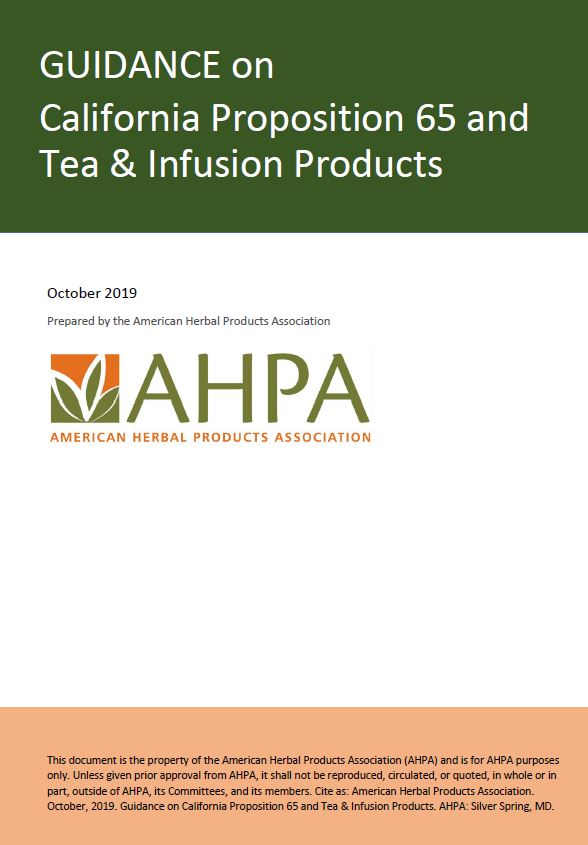 AHPA has posted this free guidance to help tea and infusion product companies understand, navigate and mitigate liabilities related to California's Proposition 65 (the Safe Drinking Water and Toxic Enforcement Act of 1986).
AHPA has posted this free guidance to help tea and infusion product companies understand, navigate and mitigate liabilities related to California's Proposition 65 (the Safe Drinking Water and Toxic Enforcement Act of 1986).
Since July 2016, numerous companies that sell or manufacture tea and infusion products, primarily marketers of branded finished products, have been the subject of complaints alleging violation of California's Prop 65 for failure to provide the required warnings due to the presence of lead and, in a few cases, naphthalene. To date, several of these cases have been settled, either individually or through a joint settlement involving 19 defense parties reportedly acting under a joint defense agreement.
Also of concern is the Proposition 65 listing of several chemical constituents which are naturally occurring in some botanicals used in teas and dietary supplements. Most recently, two processed botanicals have been added to the Proposition 65 list due to the results observed after testing these materials in long-term carcinogenicity assays.
This guidance focuses on the regulatory and liability implications of California Proposition 65 for tea and infusion products sold in the State. It is not intended to address any other elements of Proposition 65, nor does it serve as a substitute for this law, its implementing regulations, or legal counsel.
Consumer goods sold in the State of California are generally subject to Prop 65. The regulations that have been implemented in the years since the Proposition was passed place specific warning requirements on marketers of products sold in the State of California if the product contains chemicals listed by the State as carcinogens or reproductive toxicants. Failure to provide such warnings can result in action by the California Attorney General or by “any person in the public interest.”
Proposition 65 requires persons doing business to provide “clear and reasonable” warnings prior to exposing individuals to chemicals known to the State to cause cancer and/or reproductive toxicity. The State is required to publish a list of the chemicals it considers to cause cancer and/or reproductive toxicity.